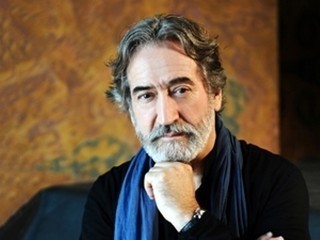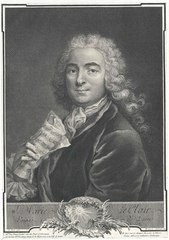|
Back
Dainy Dances and Murder Most Foul New York
Zankel Hall, Carnegie Hall
02/23/2022 -
Anonymous: Concert donné à Louis XIII en 1627 (collected by André Danican Philidor): Les Ombres – Deuxième air pour les mêmes – Les Suisses – Les Suissesses – Les Gascons – Entrée de Mr. de Liancourt – Les Vallets de la Faiste – Les Nimphes de la Grenouillère – Les Bergers – Les Amériquains
Jean de Sainte-Colombe: Concert à deux violes esgales No.41: “Le retour”
Marin Marais: Pièces de viole, Book 5: No.105 “Marche persane dite La Savigny” – Pièces de viole, Book 2: No.37 “Rondeau champêtre” & No.101 “Sarabande à l’Espagnole” – Pièces de viole, Book 4: No.61 “Feste champêtre”
François Couperin: Troisième concert royal
Jean-Philippe Rameau: Pièces de clavecin en concerts, Troisième concert: “Tambourins I et II”
Jean-Marie Leclair: Sonata in D Major, Op.2, No.8
Members of Le Concert des Nations: Manfredo Kraemer (Violin), Charles Zeble (Flute), Philippe Pierlot (Bass Viol), Rolf Lislevand (Theorbo), Marco Vitale (Harpsichord), Jordi Savall (Founder, Music Director and Bass Viol)

J. Savall
“We must have recourse to the rules of music only when our ears and genius desert us.”
Jean-Philippe Rameau (1683-1764)
Jordi Savall has discovered, performed, annotated and revealed endless compositions and composers from the past eight centuries, from Mexico to Morocco, from the Masses of Columbus to the masterpieces of Bach, from Medieval Sephardic chants to Arab poetry. Yet in concerts, he has two distinct faces. One is that of the grand orchestras, the singers, drummers, narrators of his themes. That is Jordi Savall the Grand Showman with the Grandest Shows. The other face is that of the chamber musician: the solo bass‑violist with three or four equally proficient performers on traverse flute, old violin, harpsichord and theorbo.
These are rarefied concerts for devoted audiences and Zankel Hall was packed with these devotees of late 17th Century chamber music. These are ardent aficionados, and I was almost envious of their passion. As a generalist, it was inconceivable that their unabated delight at a sonata for two bass violas was equal to others hearing, say, Michael Tilson Thomas conducting Mahler’s Eighth Symphony.
With no apologies, Mea culpa.
Actually, Mr. Savall was a wee bit of a charlatan last night. His set of dances arranged by André Danican Philidor was named in the program Concert Given for Louis XIII in 1627, and was dutifully played by the six players from Savall’s “Concert of Nations”. However, that title truncated the original name: Concert Given for Louis XIII for 24 Violins and Eight Oboes.
And probably some drums and winds besides. So if Mr. Savall cut off the brazon sounds, at least we had some pleasantly dainty tunes. Including the final “The Americans”, with a rip-roaring Turkey in the Straw-style hoedown. This was the early 17th Century version of music supposedly replicated the newly discovered Native Americans of the New World.
Take that, Antonín Dvorák!
After this came Jean de Sainte-Colombe’s Concerto for Two Bass Viols, called “The Return”. It was the 41st such work by the 17th Century composer. And that led instinctively to the story of his life, All the Mornings of the World, a magnificent French film, with Mr. Savall as performer.
He didn’t exactly invent Marin Marais, but the performances–like Strauss’s Zarathustra in 2001–put Marais on the map. The four works for viol (as well as a few members of the consort) were played as deftly as one would wish, though it was still “ancient” music.
Both Couperin and Rameau eased us into the 18th Century. Unfair as this may sound, the Italian and German 18th Century piano works played by Víkingur Olafsson the previous night needed no excuses for their age. The French music was correct, sometimes danceable, sometimes slow. Yet one could not forget this was composed for music‑loving royalties whose rules were ingenious titles, danceable rhythms and strait-laced propriety.

J.-M. Leclair
By the time of Jean-Marie Leclair, we had the “ modern” violin, played with zest by Manfred Kraemer. Known in his time as the “French Corelli”, Leclair had a horrible death, usually paired with Lully’s death from gangrene a century before. Both composers were choleric personalities. But where Lully stabbed himself, Leclair, was found with three knife-wounds, lying in a pool of blood. He could have been murdered by his gardener, his ex‑wife, his nephew, all of whom loathed him.
Or, like Ms. Christie’s Murder on the Orient Express, all three could have performed the grisly deed.
Obviously it was not done by audiences then and now, who approved such light‑hearted vivacious music.
Harry Rolnick
|